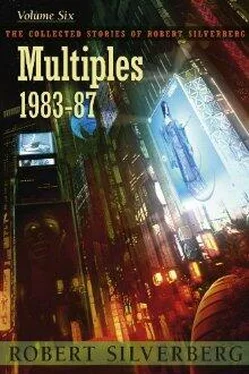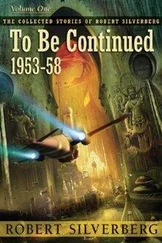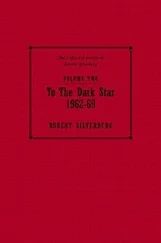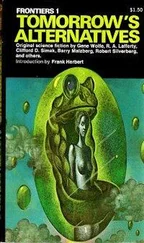Robert Silverberg - The Iron Star
Здесь есть возможность читать онлайн «Robert Silverberg - The Iron Star» весь текст электронной книги совершенно бесплатно (целиком полную версию без сокращений). В некоторых случаях можно слушать аудио, скачать через торрент в формате fb2 и присутствует краткое содержание. Год выпуска: 2011, ISBN: 2011, Издательство: Subterranean Press, Жанр: Фантастика и фэнтези, на английском языке. Описание произведения, (предисловие) а так же отзывы посетителей доступны на портале библиотеки ЛибКат.
- Название:The Iron Star
- Автор:
- Издательство:Subterranean Press
- Жанр:
- Год:2011
- ISBN:978-1-59606-402-7
- Рейтинг книги:4 / 5. Голосов: 1
-
Избранное:Добавить в избранное
- Отзывы:
-
Ваша оценка:
- 80
- 1
- 2
- 3
- 4
- 5
The Iron Star: краткое содержание, описание и аннотация
Предлагаем к чтению аннотацию, описание, краткое содержание или предисловие (зависит от того, что написал сам автор книги «The Iron Star»). Если вы не нашли необходимую информацию о книге — напишите в комментариях, мы постараемся отыскать её.
The Iron Star — читать онлайн бесплатно полную книгу (весь текст) целиком
Ниже представлен текст книги, разбитый по страницам. Система сохранения места последней прочитанной страницы, позволяет с удобством читать онлайн бесплатно книгу «The Iron Star», без необходимости каждый раз заново искать на чём Вы остановились. Поставьте закладку, и сможете в любой момент перейти на страницу, на которой закончили чтение.
Интервал:
Закладка:
The Iron Star
by Robert Silverberg
The alien ship came drifting up from behind the far side of the neutron star just as I was going on watch. It looked a little like a miniature neutron star itself: a perfect sphere, metallic, dark. But neutron stars don’t have six perky little out-thrust legs and the alien craft did.
While I paused in front of the screen the alien floated diagonally upward, cutting a swathe of darkness across the brilliantly starry sky like a fast-moving black hole. It even occulted the real black hole that lay thirty light-minutes away.
I stared at the strange vessel, fascinated and annoyed, wishing I had never seen it, wishing it would softly and suddenly vanish away. This mission was sufficiently complicated already. We hadn’t needed an alien ship to appear on the scene. For five days now we had circled the neutron star in seesaw orbit with the aliens, a hundred eighty degrees apart. They hadn’t said anything to us and we didn’t know how to say anything to them. I didn’t feel good about that. I like things direct, succinct, known.
Lina Sorabji, busy enhancing sonar transparencies over at our improvised archaeology station, looked up from her work and caught me scowling. Lina is a slender, dark woman from Madras whose ancestors were priests and scholars when mine were hunting bison on the Great Plains. She said, “You shouldn’t let it get to you like that, Tom.”
“You know what it feels like, every time I see it cross the screen? It’s like having a little speck wandering around on the visual field of your eye. Irritating, frustrating, maddening—and absolutely impossible to get rid of.”
“You want to get rid of it?”
I shrugged. “Isn’t this job tough enough? Attempting to scoop a sample from the core of a neutron star? Do we really have to have an alien spaceship looking over our shoulders while we work?”
“Maybe it’s not a spaceship at all,” Lina said cheerily. “Maybe it’s just some kind of giant spacebug.”
I suppose she was trying to amuse me. I wasn’t amused. This was going to win me a place in the history of space exploration, sure: Chief Executive Officer of the first expedition from Earth ever to encounter intelligent extraterrestrial life. Terrific. But that wasn’t what IBM/Toshiba had hired me to do. And I’m more interested in completing assignments than in making history. You don’t get paid for making history.
Basically the aliens were a distraction from our real work, just as last month’s discovery of a dead civilization on a nearby solar system had been, the one whose photographs Lina Sorabji now was studying. This was supposed to be a business venture involving the experimental use of new technology, not an archaeological mission or an exercise in interspecies diplomacy. And I knew that there was a ship from the Exxon/Hyundai combine loose somewhere in hyperspace right now working on the same task we’d been sent out to handle. If they brought it off first, IBM/Toshiba would suffer a very severe loss of face, which is considered very bad on the corporate level. What’s bad for IBM/Toshiba would be exceedingly bad for me. For all of us.
I glowered at the screen. Then the orbit of the Ben-wah Maru carried us down and away and the alien disappeared from my line of sight. But not for long, I knew.
As I keyed up the log reports from my sleep period I said to Lina, “You have anything new today?” She had spent the past three weeks analysing the dead-world data. You never know what the parent companies will see as potentially profitable.
“I’m down to hundred-meter penetration now. There’s a system of broad tunnels wormholing the entire planet. Some kind of pneumatic transportation network, is my guess. Here, have a look.”
A holoprint sprang into vivid life in the air between us. It was a sonar scan that we had taken from ten thousand kilometers out, reaching a short distance below the surface of the dead world. I saw odd-angled tunnels lined with gleaming luminescent tiles that still pulsed with dazzling colors, centuries after the cataclysm that had destroyed all life there. Amazing decorative patterns of bright lines were plainly visible along the tunnel walls, lines that swirled and overlapped and entwined and beckoned my eye into some adjoining dimension.
Trains of sleek snub-nosed vehicles were scattered like caterpillars everywhere in the tunnels. In them and around them lay skeletons, thousands of them, millions, a whole continent full of commuters slaughtered as they waited at the station for the morning express. Lina touched the fine scan and gave me a close look: biped creatures, broad skulls tapering sharply at the sides, long apelike arms, seven-fingered hands with what seemed like an opposable thumb at each end, pelvises enlarged into peculiar bony crests jutting far out from their hips. It wasn’t the first time a hyperspace exploring vessel had come across relics of extinct extraterrestrial races, even a fossil or two. But these weren’t fossils. These beings had died only a few hundred years ago. And they had all died at the same time.
I shook my head somberly. “Those are some tunnels. They might have been able to convert them into pretty fair radiation shelters, is my guess. If only they’d had a little warning of what was coming.”
“They never knew what hit them.”
“No,” I said. “They never knew a thing. A supernova brewing right next door and they must not have been able to tell what was getting ready to happen.”
Lina called up another print, and another, then another. During our brief fly-by last month our sensors had captured an amazing panoramic view of this magnificent lost civilization: wide streets, spacious parks, splendid public buildings, imposing private houses, the works. Bizarre architecture, all unlikely angles and jutting crests like its creators, but unquestionably grand, noble, impressive. There had been keen intelligence at work here, and high artistry. Everything was intact and in a remarkable state of preservation, if you make allowances for the natural inroads that time and weather and I suppose the occasional earthquake will bring over three or four hundred years. Obviously this had been a wealthy, powerful society, stable and confident.
And between one instant and the next it had all been stopped dead in its tracks, wiped out, extinguished, annihilated. Perhaps they had had a fraction of a second to realize that the end of the world had come, but no more than that. I saw what surely were family groups huddling together, skeletons clumped in threes or fours or fives. I saw what I took to be couples with their seven-fingered hands still clasped in a final exchange of love. I saw some kneeling in a weird elbows-down position that might have been one of—who can say? Prayer? Despair? Acceptance?
A sun had exploded and this great world had died. I shuddered, not for the first time, thinking of it.
It hadn’t even been their own sun. What had blown up was this one, forty light-years away from them, the one that was now the neutron star about which we orbited and which once had been a main-sequence sun maybe three or four times as big as Earth’s. Or else it had been the other one in this binary system, thirty light-minutes from the first, the blazing young giant companion star of which nothing remained except the black hole nearby. At the moment we had no way of knowing which of these two stars had gone supernova first. Whichever one it was, though, had sent a furious burst of radiation heading outward, a lethal flux of cosmic rays capable of destroying most or perhaps all life-forms within a sphere a hundred light-years in diameter.
The planet of the underground tunnels and the noble temples had simply been in the way. One of these two suns had come to the moment when all the fuel in its core had been consumed: hydrogen had been fused into helium, helium into carbon, carbon into neon, oxygen, sulphur, silicon, until at last a core of pure iron lay at its heart. There is no atomic nucleus more strongly bound than iron. The star had reached the point where its release of energy through fusion had to cease; and with the end of energy production the star no longer could withstand the gravitational pressure of its own vast mass. In a moment, in the twinkling of an eye, the core underwent a catastrophic collapse. Its matter was compressed—beyond the point of equilibrium. And rebounded. And sent forth an intense shock wave that went rushing through the star’s outer layers at a speed of 15,000 kilometers a second.
Читать дальшеИнтервал:
Закладка:
Похожие книги на «The Iron Star»
Представляем Вашему вниманию похожие книги на «The Iron Star» списком для выбора. Мы отобрали схожую по названию и смыслу литературу в надежде предоставить читателям больше вариантов отыскать новые, интересные, ещё непрочитанные произведения.
Обсуждение, отзывы о книге «The Iron Star» и просто собственные мнения читателей. Оставьте ваши комментарии, напишите, что Вы думаете о произведении, его смысле или главных героях. Укажите что конкретно понравилось, а что нет, и почему Вы так считаете.












